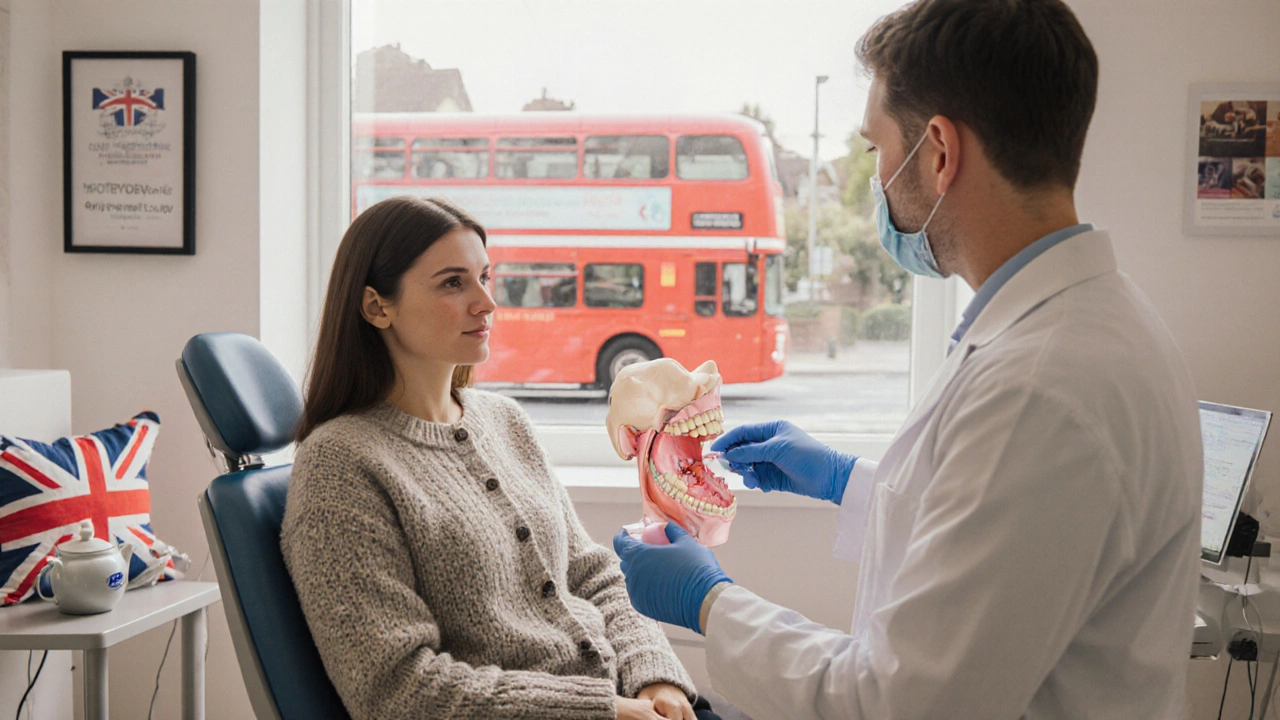Smoking and Dental Implants: What You Should Know
Thinking about getting a dental implant but you smoke? You’re not alone. Many people wonder if their habit will mess up the procedure. The short answer is: smoking does raise the risk of problems, but there are steps you can take to improve your chances of success.
How Smoking Affects Implant Healing
When a dentist places an implant, the bone needs to grow around the metal post. This process, called osseointegration, relies on good blood flow and clean tissue. Smoking narrows blood vessels, cuts oxygen supply, and slows cell regeneration. As a result, the bone may not bond properly, leading to loose implants or infection.
Studies show smokers are up to three times more likely to lose an implant compared with non‑smokers. The danger isn’t just during surgery; the habit continues to affect the implant for months afterward. Even a few cigarettes a day can increase the odds of gum inflammation around the implant site.
Tips for Smokers Considering Implants
1. Quit or cut back before surgery. Even reducing smoking a week or two before the appointment can boost blood flow. Many dentists ask patients to stop for at least 48 hours, but the longer the break, the better.
2. Follow post‑op care closely. Rinse with an antimicrobial mouthwash, brush gently, and avoid hard foods for the first week. These steps keep bacteria down and give the tissue a chance to heal.
3. Talk to your dentist about nicotine patches or gum. Switching to a non‑smoking nicotine product can keep cravings at bay without the harmful smoke that harms blood vessels.
4. Schedule regular check‑ups. Frequent visits let your dentist spot early signs of trouble, such as redness or looseness, before they become serious.
5. Stay hydrated and eat a balanced diet. Vitamin C, protein, and calcium support tissue repair. Drinking water also helps flush toxins from smoking.
If quitting entirely feels daunting, set realistic goals: cut back to one or two cigarettes a day around the surgery week, then gradually taper off. Many patients find that once the implant feels stable, the motivation to maintain it pushes them to quit for good.
Remember, the decision is personal. Some smokers go through with implants and have no issues, while others experience setbacks. Open communication with your dental team lets you weigh the risks, plan a tailored after‑care routine, and decide the best path for your smile.
Bottom line: smoking does raise the odds of implant failure, but you can lower those odds with a quit plan, diligent care, and regular dental visits. Take control of your oral health, and you’ll give your new tooth the best chance to last.

Who Should Avoid Dental Implants? Key Factors That Disqualify Candidates
Learn which health conditions and habits make you unsuitable for dental implants, how to address them, and the alternatives available for a confident smile.
Categories: Dental Implants UK
0
